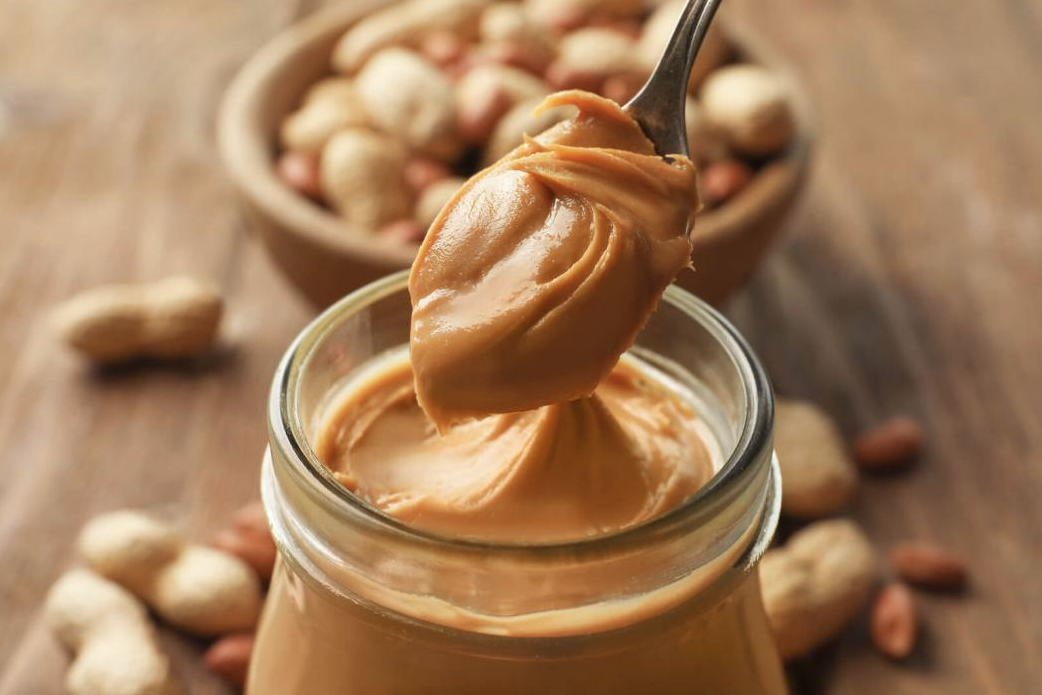By: Heidi Wagenbach
I love peanut butter. I eat it pretty much everyday because it’s hearty, tasty, and gives me the energy I need to keep up with my job, writing, and working out. Not being a crazy fan of other nuts, besides cashews and almonds, I’ve been indulging in Kirkland Signature Organic Peanut Butter ever since I was a kid. Per 2 tablespoons, this spread packs in 200 calories, 16g of fat, 7g of carbohydrates, 85mg of sodium, and 8g of protein. Kirkland’s peanut butter has two ingredients: dry roasted organic peanuts and sea salt. But depending on what brand you consume, peanut butter may or not be healthy, especially when trans fat, sugars, and oils are added.
Benefits
According to Healthline, PB is one of the most popular food spreads (for those who aren’t allergic of course). As seen above, PB is a wonderful source of protein but is low on an essential amino acid known as methionine. (For example, vegetarians who are limited in their sources for protein should not solely rely on peanut butter as their main source for this nutrient). Being relatively low in carbs as well, PB is good for people with type 2 diabetes, in the sense that there is a very slim spike in blood sugar. A study showed that women who ate peanut butter five or more times a week were at a 21% lower risk to develop diabetes, which may also be a contribution from oleic acid, a monounsaturated fat found in peanuts. High in healthy fats, when eaten in moderation, PB is good for weight loss. Vitamin E, vitamin B3, vitamin B6, folate, magnesium, copper, and manganese are also provided in peanut butter, not to mention biotin, vitamin B5, iron, potassium, etc. PB is also a source of antioxidants, lowering the risk of heart disease.
Downsides
In the same article, peanut butter is argued to be a potential source of Aflatoxins. Since peanuts grow underground, they often obtain a mold called Aspergillus, which has the possibility of causing cancer, stunting growth, and slowing mental functionality but those results are still unproven. Nonetheless, the process peanuts undergo to become peanut butter reduces the amount of Aflatoxins we’re exposed to and The U.S. Department of Agriculture monitors the amount to ensure no company goes over the limit.
Is Peanut Butter Good for You? reviews the pros and cons of peanut butter, such as how bodybuilders use this food as a source to put on pounds and repair muscles. Some of the disadvantages are the high content of calories, saturated fats, and sodium, but PB has been linked to reducing the risk of breast disease.
Hydrogenated Vegetable Oil
Hydrogenated vegetable oil is used in many processed foods because of its cheap price and enduring shelf life. In the article What Is Hydrogenated Vegetable Oil?, the author describes this mixture as an extraction from olives, sunflowers, and soybeans. Companies use the hydrogenation process to create a solid/spreadable texture (sounds familiar?), which therefore influences the texture and flavor of said product, yet increases the intake of trans fat to your diet. Some of the negative side effects of consuming hydrogenated vegetable oil include impairing blood sugar control, insulin resistance, increasing inflammation, and harming heart health (increasing bad cholesterol).
Skippy and Jif
Two of the most recognizable and iconic brands are Skippy and Jif. Going to their websites and seeing how many positive reviews there are for their creamy peanut butters proves how popular and delicious people think they are. However, both of them contain added ingredients that can harm your health in the long run if consumed often. (Another ridiculous fact is that these jars can come in various sizes, all the way up to 4 to 5 lbs).
Skippy
- Ingredients: roasted peanuts, sugar, hydrogenated vegetable oil (cottonseed, soybean, and rapeseed oil) to prevent separation, salt.
- Nutrition: (per serving – 2 Tbsp)
- Calories: 190
- Total fat: 16g
- Total carbohydrates: 6g
- Sodium: 150mg
- Includes 3g Added Sugars
- Protein: 7g
Jif
- Ingredients: roasted peanuts, sugar, contains 2% or less of: molasses, fully hydrogenated vegetable oils (rapeseed and soybean), mono and diglycerides, salt
- Nutrition: (per serving – 2 Tbsp)
- Calories: 190
- Total fat: 16g
- Sodium: 140mg
- Total carbohydrates: 8g
- Includes 2g Added Sugars
- Protein: 7g
While these two peanut butters are quite similar, comparing the ingredients and nutritional information with the natural peanut butter as listed above, you can see the drastic difference. Even though Skippy and Jif are only $2.49 per jar at Target, and Costco has the dual pack which approximates to about $5.74 individually, Kirkland’s PB is the clearly healthier option.
Answering The Question:
Peanut butter, like any food, needs to be taken in moderation and should not be the only source of specific vitamins your body needs. Like any healthy diet, peanut butter can be incorporated to ensure your intake of protein and other nutrients. Brands like Skippy, Jif, and the various knockoff brands that put hydrogenated vegetable oil and sugar into the mix should be avoided. If you’re as much of a PB fan as I am, opting for organic and natural spreads is the best way to enjoy the taste without damaging your body later on. As long as you are a well-balanced person who makes exercising a priority and doesn’t eat other junk food, natural peanut butter provides a high-caloric snack and gives you healthy benefits that will satisfy.

